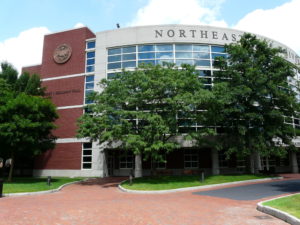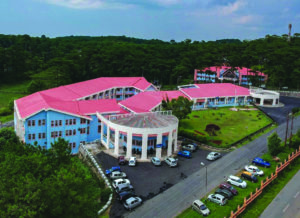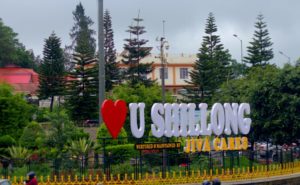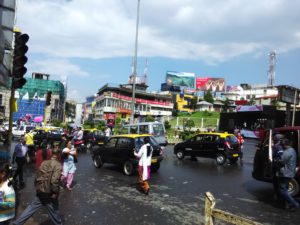By Juan Pablo Torrents-Faura
Two years after my last visit, I have returned to Shillong — and the city has welcomed me with the same warmth as before. Nestled among the hills at an altitude of 1,500 metres, the capital of Meghalaya and the homeland of the Khasi community, this small yet vibrant city in North East India continues to fascinate me deeply.
 What we encounter here is a youthful and profoundly Christian city. The legacy of the Salesian missionaries is not only spiritual but also educational and cultural. The Don Bosco Museum, for instance, offers a captivating journey through the history and ethnic diversity of North East India. It stands as a testament to the region’s rich heritage and the missionaries’ lasting contribution.
What we encounter here is a youthful and profoundly Christian city. The legacy of the Salesian missionaries is not only spiritual but also educational and cultural. The Don Bosco Museum, for instance, offers a captivating journey through the history and ethnic diversity of North East India. It stands as a testament to the region’s rich heritage and the missionaries’ lasting contribution.
 The presence of young people is striking — a generation that is respectful of its traditions and highly dedicated to education. At the North-Eastern Hill University (NEHU) located in the Mawlai district, students from across India pursue academic degrees that will help shape their professional futures. The campus itself is expansive and beautifully integrated with nature, reflecting a balance between academic modernity and cultural rootedness. Meanwhile, in the Salesian schools, thousands of children and teenagers receive a high-quality education that, in my view as a European, rivals that of many institutions in Spain. It is inspiring to see the value placed on both intellectual development and moral growth.
The presence of young people is striking — a generation that is respectful of its traditions and highly dedicated to education. At the North-Eastern Hill University (NEHU) located in the Mawlai district, students from across India pursue academic degrees that will help shape their professional futures. The campus itself is expansive and beautifully integrated with nature, reflecting a balance between academic modernity and cultural rootedness. Meanwhile, in the Salesian schools, thousands of children and teenagers receive a high-quality education that, in my view as a European, rivals that of many institutions in Spain. It is inspiring to see the value placed on both intellectual development and moral growth.
 In Khyndailad (Police Bazar), Shillong’s bustling commercial hub, the rhythm of daily life is both dynamic and harmonious. Students, professionals, tourists and families move through the streets with contagious energy. The glowing “I
In Khyndailad (Police Bazar), Shillong’s bustling commercial hub, the rhythm of daily life is both dynamic and harmonious. Students, professionals, tourists and families move through the streets with contagious energy. The glowing “I  Shillong” sign is more than just a photo opportunity — it symbolises local pride and the deep affection residents feel for their city.
Shillong” sign is more than just a photo opportunity — it symbolises local pride and the deep affection residents feel for their city.
 Importantly, Shillong is not only preserving its cultural roots but also embracing the future. A prime example is the ambitious and ongoing “New Shillong Township” project — a planned satellite city designed to decongest the current urban centre and offer sustainable, modern infrastructure. This forward-thinking initiative reflects Meghalaya’s commitment to thoughtful urban development.
Importantly, Shillong is not only preserving its cultural roots but also embracing the future. A prime example is the ambitious and ongoing “New Shillong Township” project — a planned satellite city designed to decongest the current urban centre and offer sustainable, modern infrastructure. This forward-thinking initiative reflects Meghalaya’s commitment to thoughtful urban development.
The capital of Meghalaya is not merely a destination to visit once — it is a city that invites you to return. And with each return, you discover something new, not only about India but also about yourself.
(The author is a professor and PR consultant from Barcelona, Spain. He currently advises Indian companies and students interested in pursuing education or business opportunities in Barcelona.)



